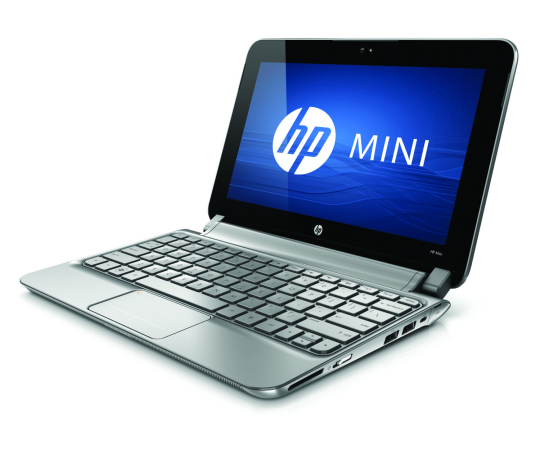Intel talks tablets, but is the Atom plan credible?

Updated: Intel's third quarter earnings conference call could be summed up in one word: Tablets. Analysts wanted to hear about the tablet strategy for Intel---the poster child for netbooks, which put the chip giant's Atom processor on the map.
The upshot: Tablet sales are derailing netbook sales as well as PC units to some degree. In the long run, Intel argues that tablets will bring additional sales to the computing market.
The big question is whether Intel can refashion the Atom for the tablet. Samsung's Galaxy Tab and Apple's iPad use their own chips for their respective tablets. Dell's Streak uses a chip from Qualcomm.

Otellini said:
I know that the big question on everyone's mind is how Intel will respond to new computing categories where Intel currently has little presence specifically tablets. Let me take a minute and give you my perspective on this. We think tablets are exciting and we fully welcome their arrival. Apple has done a wonderful job reinventing the category. We believe that like netbooks, tablets will expand the total addressable market for computing overall with a new form factor and new uses that bring computing to even more aspects of our lives.
Will they impact PC sales? Sure, at the margin they probably will. Consumers will have a limited amount of discretionary income and some will choose to purchase a tablet instead of upgrading an existing PC or purchasing a netbook in any given period.
We saw the same thing happen when netbooks were introduced, but three years later, both the PC and the netbook market segments have grown substantially and we believe that will happen again with tablets. We take a longer term view to the tablet opportunity and the overarching benefit to Intel and the rest of the industry is to have a new, growing computing segment where we can participate alongside our growing PC business.
At Intel, we're going to utilize all of the assets at our disposal to win this segment. The world's best silicon process technology, the best compute architecture and our global scale. We are deeply engaged with a number of partners to bring to market innovative tablet solutions. Our design win momentum is very strong and in the coming months and quarters you will see Intel solutions that run on Windows, Android, and MeeGo operating systems across a variety of form factors and price points. We fully expect to participate broadly and profitably in this category and that in the end, the tablet category will be additive to our bottom line and not take away from it.
Tablets are more performance sensitive and intensive devices than phones are. The kinds of applications people do on tablets will require that kind of compute capability---the ability to do real full multi-tasking. For many people particularly enterprise evaluations for tablets, Windows compatibility is very important. We are the only architecture that runs all the major---all but one of the major tablet operating systems. We don't yet run on Apple. I think we're in a pretty good space.
Those comments may hold a few pitfalls for Intel. What if tablets aren't seen as full fledged computing devices? Intel seems to want to turn tablets into a netbook or laptop. That take may miss the point. In many ways, it's similar to Microsoft constantly talking about Windows 7 on a tablet when Windows Phone 7 would be a better choice. You don't see Apple trying to cram Mac OS X on the iPad do you?
JMP Securities analyst Alex Gauna said in a research note:
Intel is demonstrating it is the powerhouse in delivering raw computing performance, and we like the candor with which it is acknowledging the tablet threat. If the company gets its energy consumption right with successive generations of Atom processors, there is every reason to believe Intel's claims that it will profitably participate in this expanding product category.
The most important point in Gauna's take is the one about energy consumption. The Atom will have to deliver at least 10 hours in a tablet---that's the iPad benchmark. In the long run, Otellini indicated that Intel will take the Infineon chips---and 3G and LTE capabilities---and integrate them with the Atom. Otellini said:
We are working to bring their 3G and ultimately LTE technologies into IP blocks that we can put on to Atom phone chips and tablet chips in the three plus years out. There's really no reason to do that if you look at the high end phone and tablet market today, the Apps processor and comp processor are discrete chips. We'll integrate them.
Now there's an idea that may make Intel the tablet platform of choice. The rub is that integration is three years away. Intel doesn't have that long to figure out the tablet game.